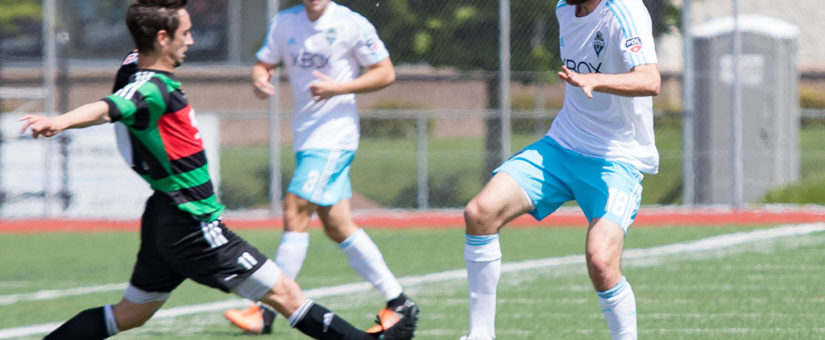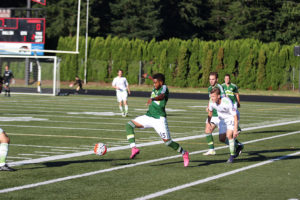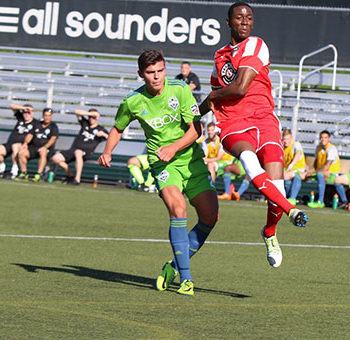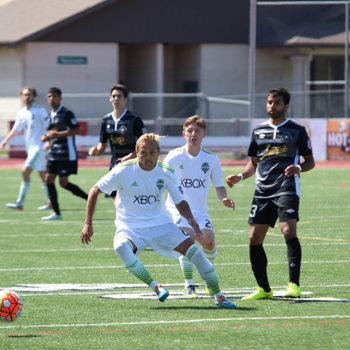
Five Mistakes a Soccer Player Can Make – Part 4
Part 4
They Don’t Debrief After Training
For the most part, players just walk off the field after training and head to the next thing on their agenda for the day. Frequently, many players, make the huge mistake of not constructively thinking about the work they just put in while playing. They assume that just coming to practice and playing hard is the best learning and development tool. While success will certainly not happen without focused, hard work, ignoring the value of a post-training debrief is a huge mistake!
Debriefing is process where an athlete uses a certain structure to evaluate the work they did in a practice or competition. A successful post-training debrief can have many potential positives benefits such as increased learning, motivation and confidence, mental and emotional recovery, and improved self-awareness (Gould, Guinan, Greenleaf, Medbery, & Peterson, 1999; Hogg, 1998, 2002; Milne, Shaw, & Steinweg, 1999). In this day and age when our attention spans are roughly 8 seconds (according to a Time article) the debriefing process doesn’t need to be long and drawn out like it used to be.

In talking with an Eastern Conference MLS outside back this week, he shared with me the way he goes about his successful debriefing process. He is working hard to earn regular minutes on the field but at times doesn’t get as much individualized feedback from his coaches as he would like. So, after training sessions and games he writes down two things he thought he did well, and two things he would like to work on in the coming field sessions. In this way he isn’t waiting to be told what to work on, as a pro he is taking charge of his development and creating his path to success through a regular debriefing process.
Another format for simple post-training debriefing is to ask yourself the following three questions;
- What did I do well technically?
- What did I do well tactically?
- What didn’t go as well as I would have liked?
Too often coaches aren’t able to get around to all their athletes and help them with debriefing, so my recommendation is for athletes to become accountable for this valuable process on their own. Taking charge of one’s development means actively thinking about the work one does on the field. The key with debriefing is to keep a record of one’s debriefs so you can go back and look for patterns, both effective, and where a change might be beneficial. The more position specific a player can make his or her debrief the better too!
 “Debriefing after a practice or game gives me a chance to decompress and reflect on my effort. It allows me to learn from my experience that day and then effectively shut down, put that competition in the past, and have a fresh mindset for the next day. On a broader scale, debriefing tracks my progress towards long-term goals and serves as a reminder to stay true to the process.”
“Debriefing after a practice or game gives me a chance to decompress and reflect on my effort. It allows me to learn from my experience that day and then effectively shut down, put that competition in the past, and have a fresh mindset for the next day. On a broader scale, debriefing tracks my progress towards long-term goals and serves as a reminder to stay true to the process.”
~Jonathan Campbell, Chicago Fire Centerback, 2nd year, @JonnyCampbell16
At Thrive, I use a post-training debrief with all my clients that helps them look at both the physical and mental things they did in their training each day. I also created a proprietary position specific post-game debrief for soccer players in order to really help them look at the mental and physical aspects of their play as it directly pertains to their roles and responsibilities. These debriefs can be completed right on their phone, so I encourage athletes to complete this process within a couple hours after coming off the field while things are still fresh in their minds.
If you would like to try the post-practice debrief to see how it works for you, then let me know. If you have other questions about how post-practice or post-training debriefing might be right for you, send me an email at [email protected]
Thanks for taking a few minutes to read about another way you can improve your game!
- sport in a pandemic: Crisis or opportunity?Chapter 4 - December 4, 2020
- Crafting the Perfect 10: - November 6, 2020
- Sport in a Pandemic:CRISIS OR OPPORTUNITY?Chapter 3 - September 23, 2020


